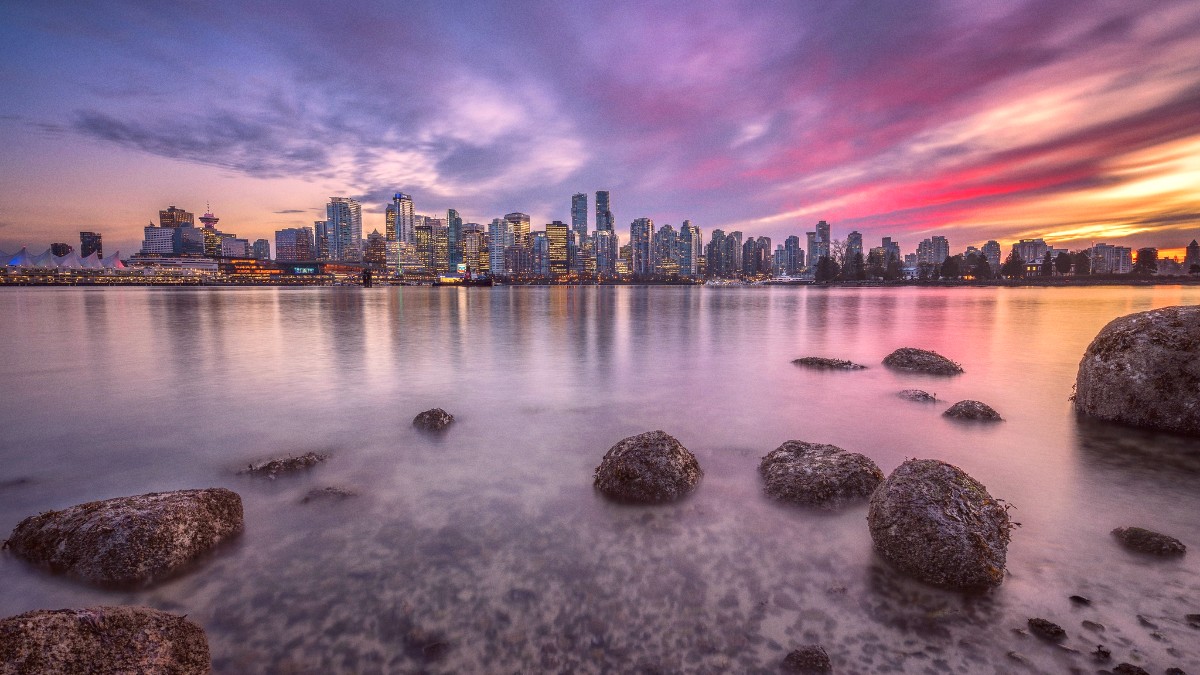
British Columbia, Canada
This large park occupies a peninsula at the northwestern edge of Vancouver's downtown core, bordered by Burrard Inlet to the north and east, and English Bay to the west.
Prepare for your visit by considering the best times to travel, entry procedures, budgeting, and health precautions. Careful preparation makes a smooth and enjoyable experience possible.
Each season presents a different park experience, influencing activities and crowd levels.
Vancouver experiences mild, temperate weather. Spring (April - May) sees temperatures of 8-15°C (46-59°F) with increasing sunshine and moderate rainfall. Summer (June - August) brings the warmest and driest conditions, averaging 18-22°C (64-72°F) with low humidity. Autumn (September - October) has mild temperatures, typically 10-16°C (50-61°F). Winter (November - March) is cool and wet, 3-8°C (37-46°F), with frequent rain and occasional light snow.
High Season (June - August): Weather is ideal for outdoor activities, daylight hours are long, and all attractions operate fully. Crowds are at their largest, prices for flights and accommodations are higher. Shoulder Season (April - May, September - October): Temperatures are pleasant, fewer crowds, some services offer lower prices. Weather is more unpredictable, with more rain. Low Season (November - March): Enjoy the fewest crowds and best deals on flights and accommodations. Coldest and wettest period, shorter daylight hours, limited outdoor activities.
Summer and shoulder seasons offer dry, pleasant conditions.
Late spring to early summer presents peak blooms.
Birds appear year-round; specific bird migrations vary by season.
This indoor attraction operates year-round.
Summer offers clear views for scenic shots.
Vancouver does not experience monsoons or hurricanes. Extreme heatwaves occur in summer, but they are not a regular feature. Winter rain is a significant factor. Pack a Waterproof rain jacket and waterproof footwear when visiting Vancouver in the fall, winter, or spring.
Travelers visiting Canada meet specific entry requirements. These rules depend on your nationality and how you arrive. Determine the correct entry document for your travel.
Gather all necessary papers before traveling. Your passport remains valid for your entire stay. Proof of funds shows financial support. Proof of onward travel or a return ticket is often required. An invitation letter is useful if visiting family or friends. Keep eTA or visa approval with travel documents.
Canada does not have general entry fees for visitors. Upon arrival, present your passport and documents to a Canada Border Services Agency (CBSA) officer. No special permits are typically required for general tourism within Stanley Park.
Prices vary significantly based on your travel style and preferences. Your daily budget depends on your comfort level.
Canada uses the Canadian Dollar (CAD, C$). Major credit cards are widely accepted. ATMs are readily available. Notify your bank before traveling.
C$60 - C$100+ per day. Covers hostel dorm, groceries/street food, public transit, free park activities.
C$150 - C$300+ per day. Includes mid-range hotel, casual dining, transit/bike rental, some paid attractions.
C$400+ per day. Allows for high-end hotel stays, fine dining, taxis/private transport, multiple paid attractions.
Tipping is customary in Canada for service industries.
Image: A scenic view of the Vancouver skyline and Lions Gate Bridge from Stanley Park.